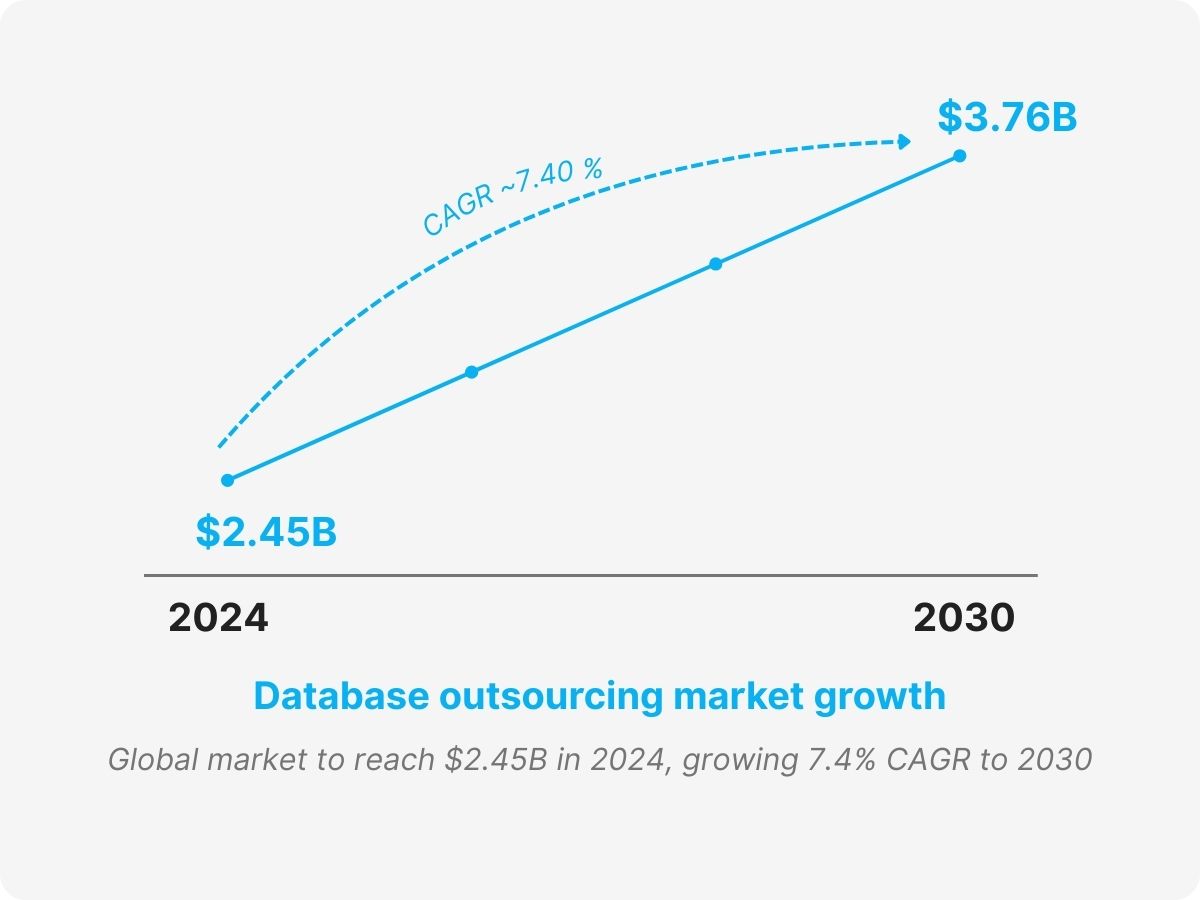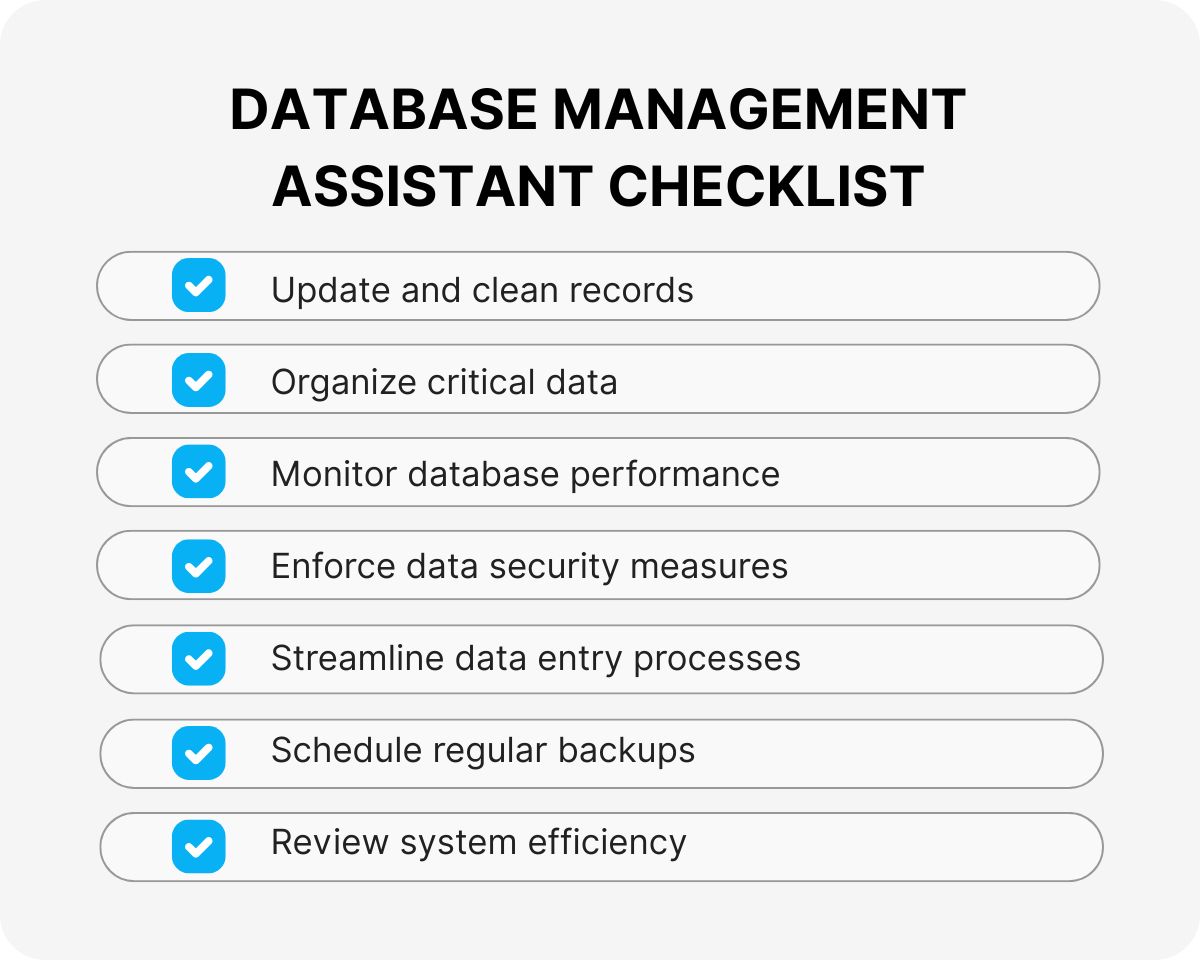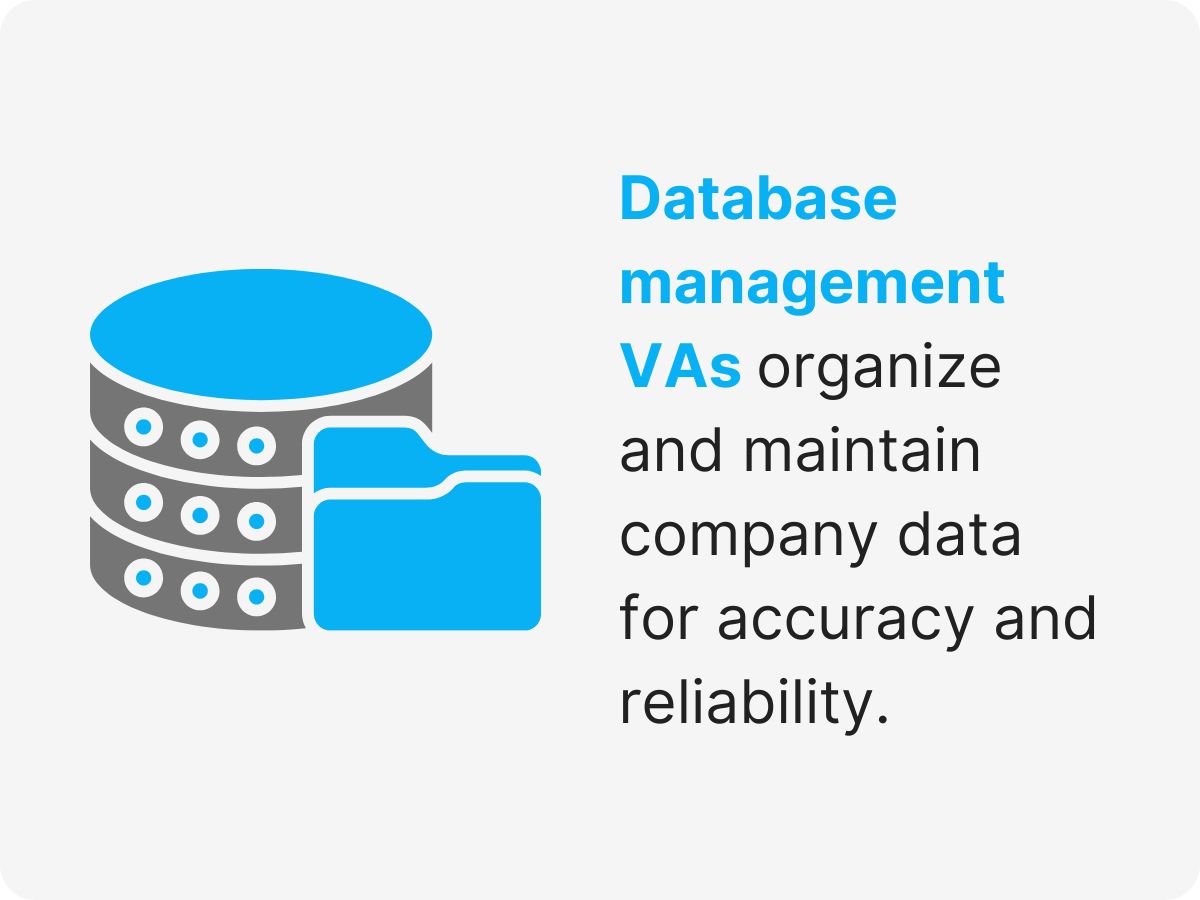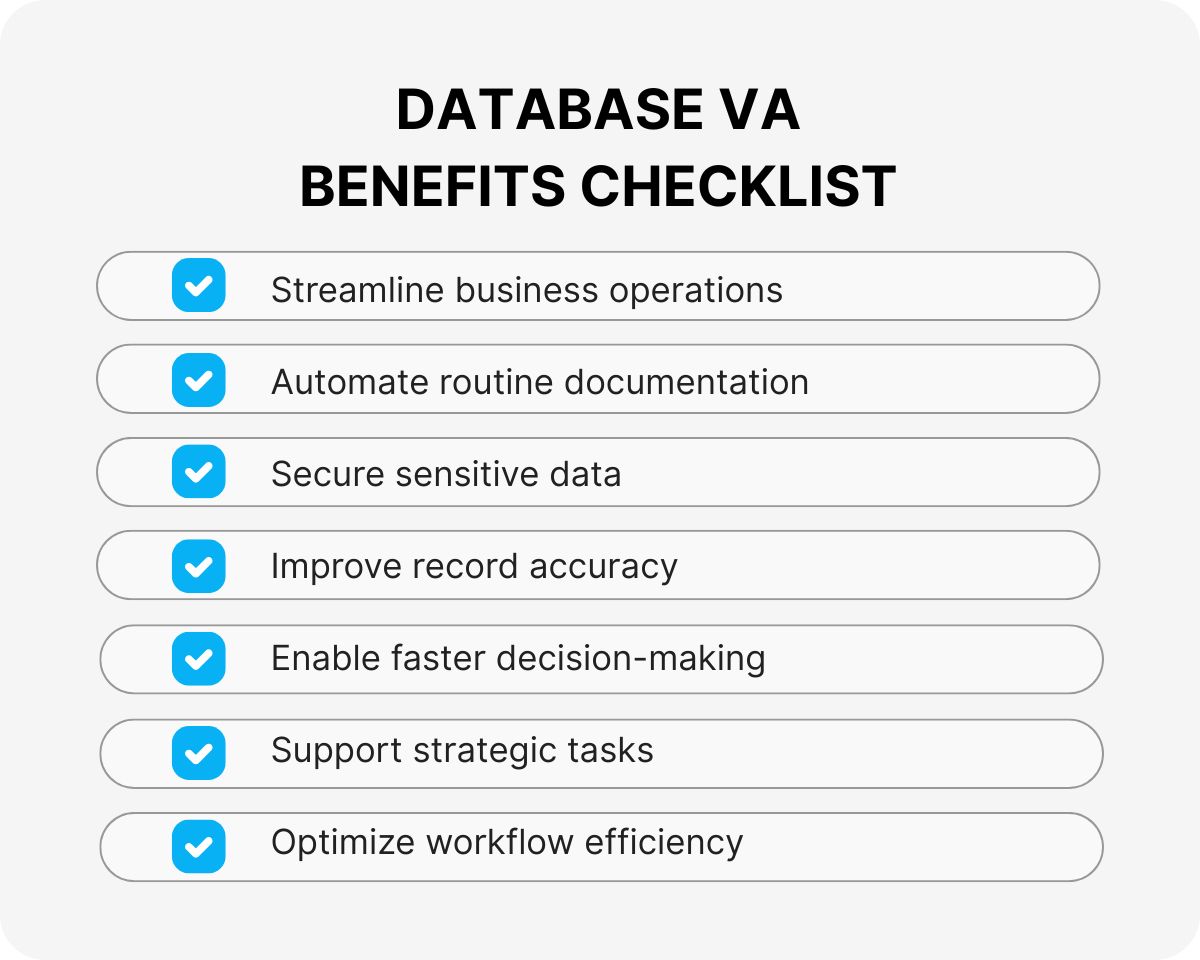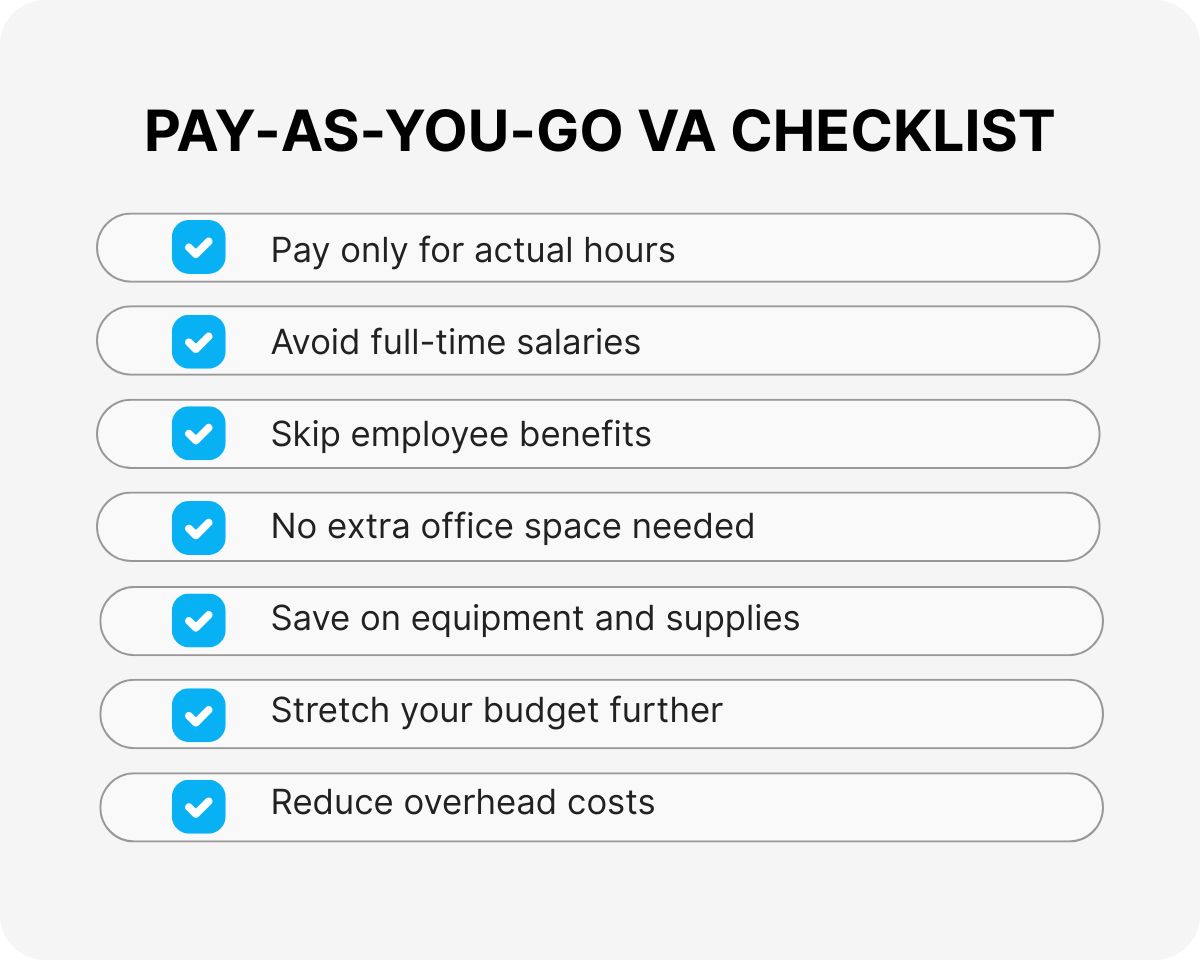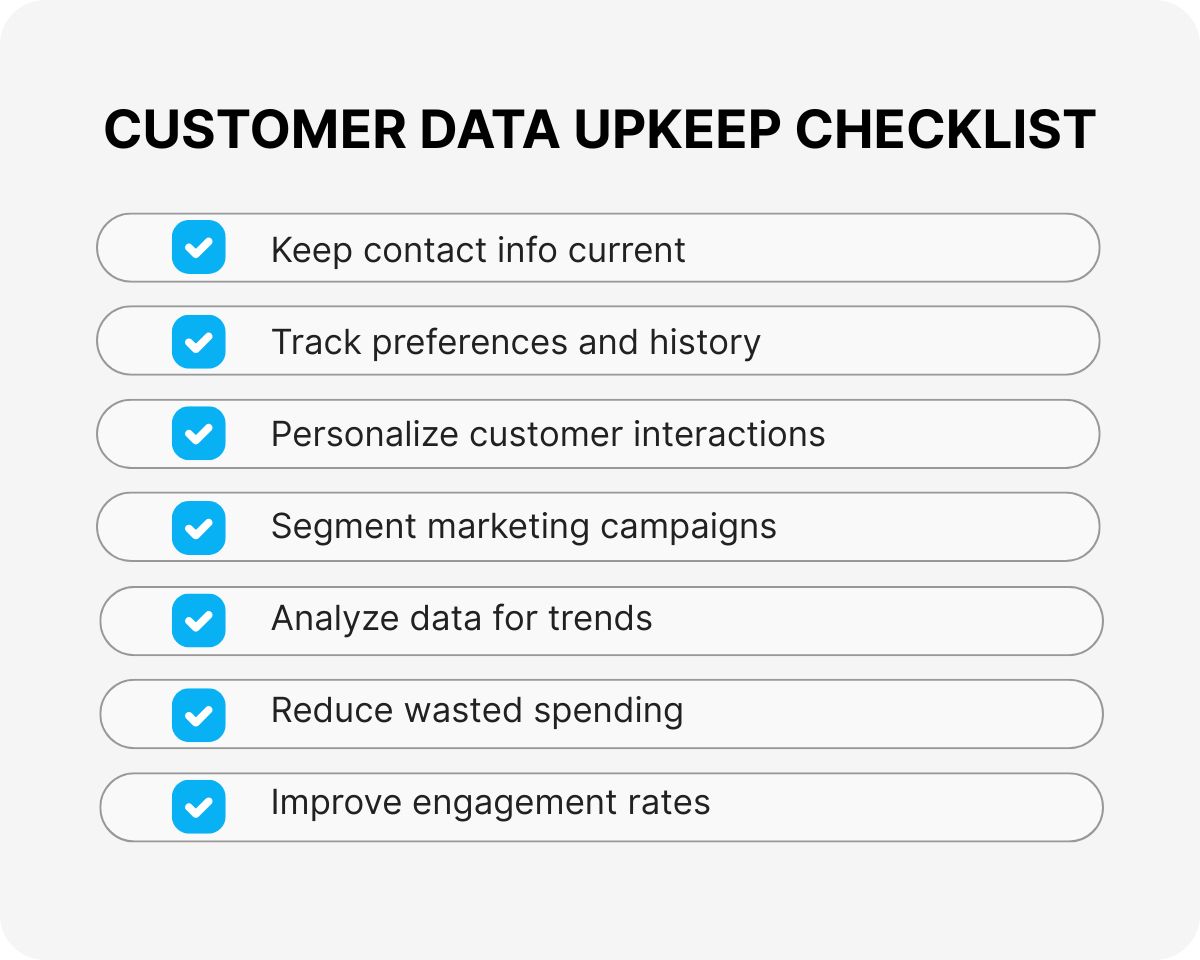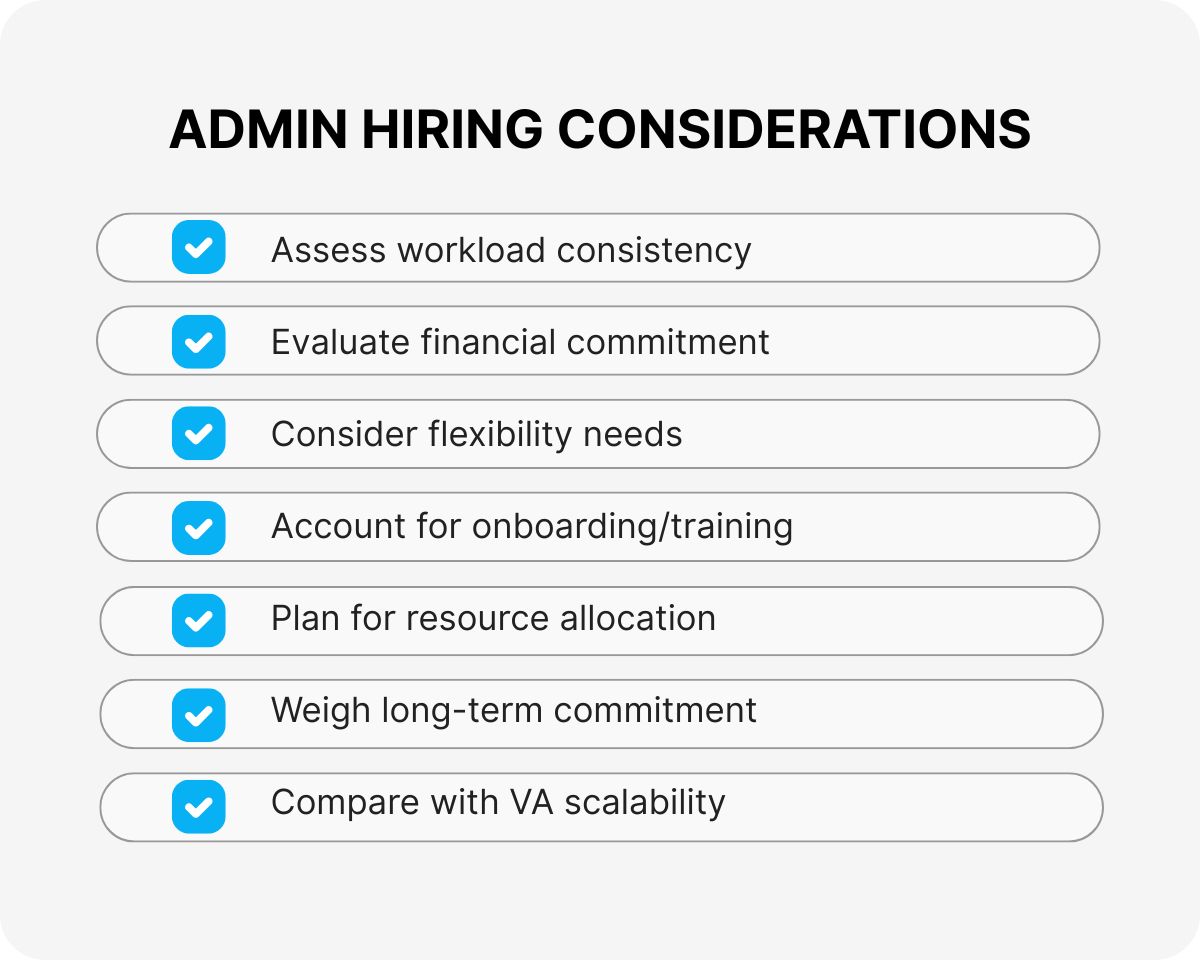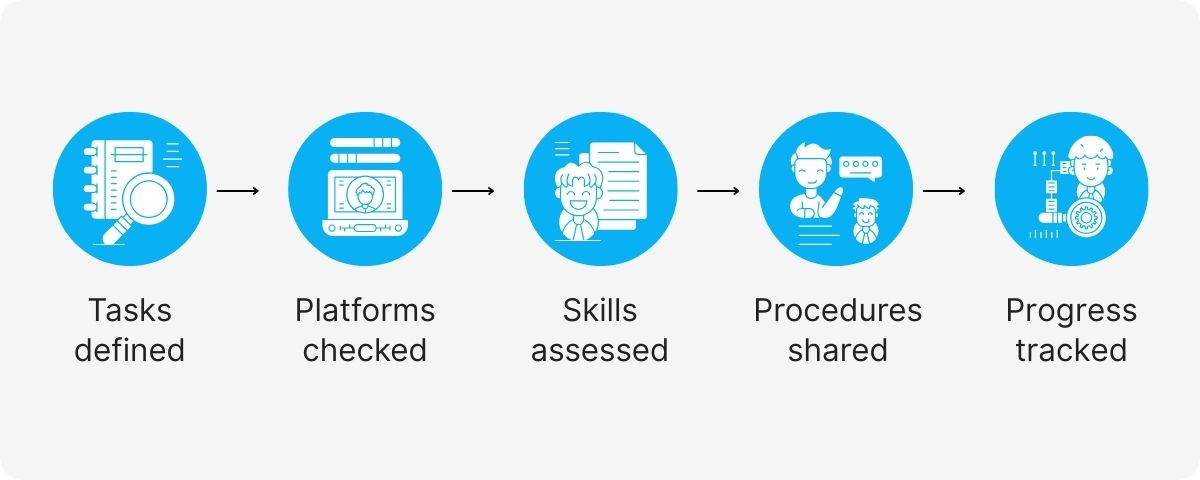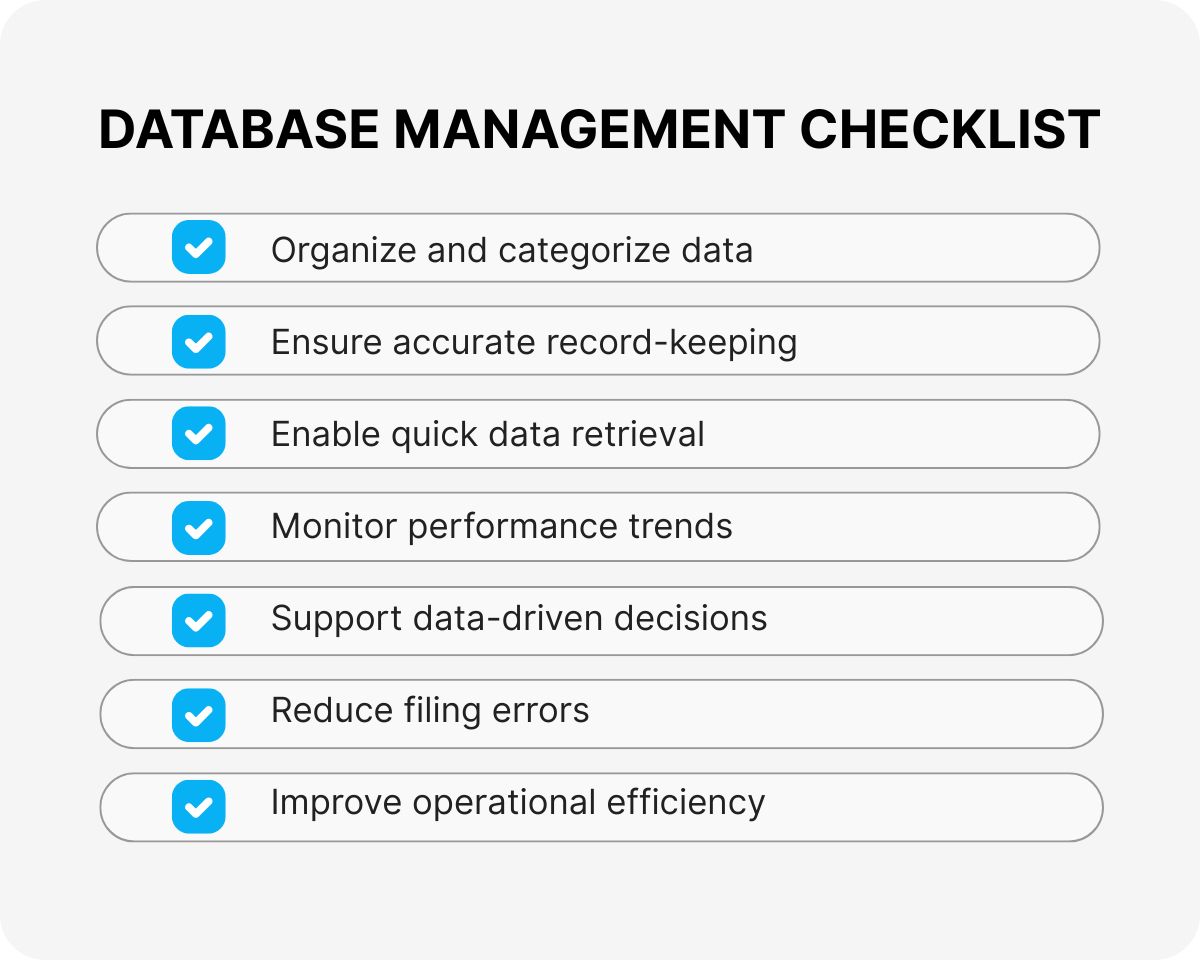Database management virtual assistant services are the key to keeping your data organized, secure, and optimized without overwhelming your in-house team. Stealth Agents provides expert VAs who streamline your database tasks—saving time, minimizing errors, and helping your business scale faster.
Let Stealth Agents manage the data so you can focus on growth—book your free consultation today!
If you’re looking to streamline your data tasks, a database management virtual assistant can make a significant difference. The global database administration outsourcing market was valued at USD $2.45 billion in 2024 and is expected to grow at a CAGR of 7.4% through 2030, highlighting the increasing reliance on expert remote support.
By delegating tasks like data cleanup, schema updates, and performance monitoring, you free internal resources for strategy instead of maintenance. Stealth Agents offers skilled virtual assistants trained in database workflows, ensuring your data stays organized, secure, and aligned with your business needs.
A database management virtual assistant is a software program or tool that helps businesses efficiently manage and optimize their databases.
What Does a Database Management Assistant Do?
A database management assistant takes the headaches out of handling your business’s most valuable digital assets.
Think of them as your behind-the-scenes heroes who ensure every piece of data is collected, organized, and maintained with care.
Whether it’s updating records, cleaning up outdated information, or enforcing security measures, these assistants work quietly in the background, making sure your data remains accessible and accurate.
By managing the day-to-day details—like monitoring performance, streamlining data entry, and safeguarding sensitive information—a database management assistant gives you peace of mind and more time to focus on the big picture.
In other words, they’re essential partners for any business aiming to boost efficiency, stay competitive, and keep information flowing smoothly.
It automates various tasks related to database management virtual assistants, including setting up and configuring databases, monitoring and optimizing performance, and implementing virtual database security measures.
By using a data entry virtual assistant, businesses can streamline their database operations, improve productivity, and ensure the security and integrity of their data.
To stay ahead in database management, it’s time to leverage the power of virtual assistants.
Schedule an appointment with Stealth Agents, the leading provider of virtual assistant services and appointment setting, and experience the benefits firsthand.
Book a free discussion to discuss your preferences and get pricing information.
What Does a Database Management Assistant Do?
A database management assistant takes the headaches out of handling your business’s most valuable digital assets. Think of them as your behind-the-scenes heroes who ensure every piece of data is collected, organized, and maintained with care.
Whether it’s updating records, cleaning up outdated information, or enforcing security measures, these assistants work quietly in the background, making sure your data remains accessible and accurate. By managing the day-to-day details—like monitoring performance, streamlining data entry, and safeguarding sensitive information—a database management assistant gives you peace of mind and more time to focus on the big picture.
In other words, they’re essential partners for any business aiming to boost efficiency, stay competitive, and keep information flowing smoothly.
What is a Database Management Virtual Assistant?
A database management virtual assistant plays a crucial role in efficiently managing and organizing databases, making them ideal for companies that need virtual assistants.
They are responsible for ensuring data integrity, optimizing database performance, and implementing data security measures.
With their expertise in database management systems, they help businesses streamline their operations and make informed decisions based on accurate and reliable data.
Benefits of Using a Database Management Virtual Assistant
Using a database management virtual assistant helps businesses streamline operations and enhance efficiency.
Insurance claims virtual assistance can integrate with this by securely managing sensitive claim data, automating routine documentation, and providing actionable insights, allowing your team to focus on more strategic, high-priority tasks.
Their support improves data security, ensures accurate record-keeping, and enables faster, informed decision-making, making them an essential resource for optimized business workflows.
Overall, a database management virtual assistant is a valuable asset for businesses looking to optimize their database management processes.
Financial Advantages of the Pay-As-You-Go Virtual Assistant Model
Opting for a pay-as-you-go system when working with virtual assistants offers significant financial flexibility and savings for your business.
With this approach, you’re only billed for the exact hours your virtual assistant is working—no more paying for idle time or unnecessary overhead. This means your budget stretches further, as you aren’t locked into full-time salaries or obligated to cover costs for hours not actively spent on your projects.
But the savings extend well beyond wages:
- No Employee Benefits: There’s no need to budget for health insurance, retirement contributions, or vacation days—expenses that add up rapidly for traditional staff.
- No Extra Office Space: You won’t have to lease additional square footage or furnish another workstation, which can be especially valuable in high-rent business hubs like New York or San Francisco.
- No Supply Costs: Virtual assistants use their own equipment and resources, eliminating the need to purchase extra computers, software, or office supplies.
Why Keeping Customer Data Up-to-Date Matters for Relationship Management and Marketing
Accurate, current customer data forms the backbone of effective relationship management and targeted marketing. When your database is regularly updated, your team can deliver personalized service, respond promptly to client needs, and nurture long-term loyalty—because you’ll always have the right contact information, preferences, and purchase history at your fingertips.
Up-to-date records also empower your marketing efforts. Campaigns can be segmented more precisely, ensuring your messages reach the right audience at the right time. This reduces wasted spending and increases engagement rates.
To further enhance precision, many companies now outsource data analysis services to refine segmentation and uncover customer trends that might otherwise go unnoticed. Maintaining clean, accurate customer data isn’t just about organization; it’s about maximizing every opportunity to connect, delight, and grow with your clientele.
How Does a Database Management Virtual Assistant Work?
1. Setting Up and Configuring Databases
When it comes to setting up and configuring databases, our team of intelligent virtual assistants is here to help.
We have the expertise and experience to ensure that your databases are properly installed and optimized for performance.
Our goal is to make the process as seamless as possible so that you can focus on your core business activities.
Whether you need assistance with database design, schema creation, or data migration, we have the skills to get the job done.
2. Monitoring and Optimizing Database Performance
When it comes to monitoring and optimizing database performance, our team of experts uses a range of virtual database tools and techniques to ensure that your database runs smoothly and efficiently.
We analyze query performance, identify bottlenecks, and make necessary adjustments to improve overall performance. Additionally, we constantly monitor resource utilization and recommend optimizing hardware, Excel virtual assistant, and virtual database software configurations. Our goal is to maximize your database’s performance and minimize downtime or disruptions.
3. Implementing Data Security Measures
When it comes to implementing data security measures, we prioritize protecting sensitive information and safeguarding against unauthorized access.
Our goal is to ensure the confidentiality, integrity, and availability of the data we manage. To achieve this, we employ various techniques and best practices:
Choosing the Right Database Management Virtual Assistant
1. Identifying Your Database Management Needs
When identifying our database management assistant needs, it’s essential to consider various factors that will impact the efficiency and effectiveness of our database operations.
Understanding the specific requirements of our organization and the goals we aim to achieve is crucial.
Additionally, we need to assess the volume and complexity of our data, as well as the frequency of data updates and queries.
By evaluating these aspects, we can determine the level of expertise and support required from a database management virtual assistant.
2. Evaluating Experience and Expertise
When evaluating experience and expertise, it is essential to consider the depth and breadth of knowledge in database management.
Look for professionals who have a proven track record in handling various database systems and technologies.
Additionally, consider their years of experience in the field, as this can indicate their level of expertise.
It is also beneficial to assess their knowledge of industry best practices and their ability to stay up-to-date with the latest advancements in database management.
3. Considering Cost and Flexibility
When considering the cost and flexibility of a database management virtual assistant, it’s essential to weigh the benefits against the potential risks of outsourcing.
One of the main advantages of hiring a virtual assistant is that you only pay for the hours you actually need. Unlike bringing on a full-time employee—who requires a consistent flow of tasks to justify their salary—virtual assistants offer the ability to ramp up or scale down support as your workload shifts. This is especially valuable for businesses with fluctuating needs, whether that’s across the week, the month, or even by the hour.
You also avoid many of the overhead costs associated with traditional employees, like office space, equipment, and benefits. Most virtual assistants come equipped with their own tools and work remotely, so you’re not footing the bill for extra supplies or additional square footage.
A flexible system—where your assistant is only “on the clock” when you need them—maximizes efficiency. You’re paying for productive hours, not idle time. This not only keeps costs down but also ensures you’re getting true value for your investment.
And while the flexibility is a major plus, don’t overlook the importance of qualifications. Many reputable virtual assistants hold university degrees and have solid professional experience, so you can expect a high level of competency. For added peace of mind, make sure your chosen provider stands behind their service—some offer guarantees or refunds for unused hours, helping further reduce your risk.
Ultimately, balancing cost and flexibility means looking for a solution that fits your workload and budget while minimizing waste and maximizing the impact of every dollar spent.
4. Challenges of Hiring Full-Time or Part-Time Employees for Administrative Tasks
When weighing the option of hiring a full-time or part-time employee for your administrative needs, several important challenges and considerations come into play.
First, it’s essential to evaluate the consistency and volume of your administrative workload. Unlike virtual assistants—who can scale their support up or down depending on your business cycle—traditional employees may require a set number of hours each week, regardless of whether those hours are filled with meaningful tasks.
You should also consider the financial commitment involved. Hiring employees means committing to salaries or hourly wages, as well as potentially covering additional benefits, taxes, and other overhead costs. This can add complexity, especially if your need for administrative support fluctuates.
Here are a few key considerations:
- Flexibility: Employees may not offer the same level of flexibility as virtual assistants. During slower business periods, you may find yourself paying for idle time.
- Long-Term Commitment: Bringing on a full-time or part-time staff member is a significant step. If your workflow varies by season or project, this commitment could result in inefficiency.
- Onboarding and Training: Traditional employees often require a more extensive onboarding process, including training, workspace setup, and integration into company culture.
- Resource Allocation:Consider whether your current infrastructure can support additional staff. Do you have the capacity to manage payroll, HR, and related administrative responsibilities?
How to Hire a Database Management Virtual Assistant
Navigating the hiring process for a database management virtual assistant doesn’t have to feel overwhelming—especially if you take a structured, step-by-step approach.
Start by outlining the specific database tasks you need help with.
Are you looking for someone to handle data entry, reporting, database maintenance, or something more specialized? Clarity at this stage will make the search much more productive.
Next, explore reputable platforms like Upwork, Belay, or Freelancer.com to find candidates with relevant experience and credentials.
Most of these platforms allow you to set filters for skills, certifications, and previous client feedback, helping you zero in on professionals who fit your needs.
Once you’ve shortlisted potential VAs, set up interviews to assess both technical knowledge and compatibility with your workflow and company culture.
Don’t be afraid to ask about their experience with specific tools (think Microsoft Access, MySQL, or Salesforce), as well as their problem-solving strategies when dealing with database hiccups.
To make onboarding smoother, consider providing a concise list of your preferred procedures and software.
Many professional virtual assistants are accustomed to remote work and will adapt quickly, but a little guidance upfront can save time and avoid missteps down the road.
Finally, monitor progress and maintain open communication in the early stages.
Setting clear expectations for milestones, availability, and reporting will help ensure a smooth collaboration from day one.
How to Hire a Database Management Virtual Assistant
Navigating the hiring process for a database management virtual assistant doesn’t have to feel overwhelming—especially if you take a structured, step-by-step approach.
Start by outlining the specific database tasks you need help with. Are you looking for someone to handle data entry, reporting, database maintenance, or something more specialized? Clarity at this stage will make the search much more productive.
Next, explore reputable platforms like Upwork, Belay, or Freelancer.com to find candidates with relevant experience and credentials. Most of these platforms allow you to set filters for skills, certifications, and previous client feedback, helping you zero in on professionals who fit your needs.
Once you’ve shortlisted potential VAs, set up interviews to assess both technical knowledge and compatibility with your workflow and company culture. Don’t be afraid to ask about their experience with specific tools (think Microsoft Access, MySQL, or Salesforce), as well as their problem-solving strategies when dealing with database hiccups.
To make onboarding smoother, consider providing a concise list of your preferred procedures and software. Many professional virtual assistants are accustomed to remote work and will adapt quickly, but a little guidance upfront can save time and avoid missteps down the road.
Finally, monitor progress and maintain open communication in the early stages. Setting clear expectations for milestones, availability, and reporting will help ensure a smooth collaboration from day one.
Best Practices for Working with a Database Management Virtual Assistant
1. Establishing Clear Communication Channels
When it comes to establishing clear communication channels, effective and efficient communication is key.
It is essential to ensure that all team members are on the same page and have a shared understanding of the database management tasks and goals.
This can be achieved through regular meetings, emails, and instant messaging platforms.
Additionally, documenting communication and decisions can help maintain clarity and avoid misunderstandings.
It is also crucial to establish a feedback loop to address any issues or concerns that may arise during the database management process.
2. Defining Roles and Responsibilities
In defining roles and responsibilities, it is essential to clearly outline the tasks and duties assigned to each team member.
This ensures that everyone understands their specific responsibilities and can work together efficiently.
Collaboration and communication are key in this process, as they enable a smooth workflow and prevent confusion or overlap.
Additionally, it is essential to establish accountability and ownership for each task, ensuring that deadlines are met and quality standards are maintained.
By clearly defining roles and responsibilities, the team can effectively manage the database and ensure its smooth operation.
3. Regularly Reviewing and Updating Database Management Processes
Regularly reviewing and updating database management processes is crucial for maintaining an efficient and secure database environment.
By regularly assessing and improving our processes, we can ensure that our database is optimized for performance and meets the evolving needs of our organization.
Common Challenges and Solutions in Database Management Virtual Assistant
1. Handling Large Datasets and Performance Issues
When it comes to handling large datasets and performance issues, our database management virtual assistant is equipped with the necessary skills and expertise to ensure smooth operations.
We understand the challenges that arise when dealing with massive amounts of data and the impact it can have on database performance.
Our goal is to optimize your database’s performance and provide efficient solutions to overcome these challenges.
2. Addressing Data Security and Privacy Concerns
When it comes to data security and privacy concerns, our team takes them very seriously.
We understand the importance of safeguarding sensitive information and ensuring compliance with relevant regulations.
3. Dealing with Database Migration and Integration
When it comes to database migration and integration, there are several important considerations to keep in mind.
Database migration involves transferring data from one system to another, ensuring that the data remains intact and accessible.
Integration, on the other hand, involves combining data from multiple sources into a unified system.
Future Trends in Database Management Virtual Assistant
1. Artificial Intelligence and Machine Learning in Database Management
Artificial intelligence and machine learning are revolutionizing the field of database management.
These advanced technologies enable us to automate and optimize various aspects of database operations, leading to improved efficiency and accuracy.
2. Automation and Streamlining of Database Operations
Automation and streamlining of database operations are key trends in database management.
By integrating automation tools and techniques, database management virtual assistants can significantly improve efficiency and productivity.
Automating routine tasks such as database backups, data imports, and performance monitoring allows us to focus on more strategic activities.
This not only saves time but also reduces the risk of human error.
3. Integration with Cloud Computing and Big Data Technologies
As database management virtual assistants, we understand the importance of integrating with Cloud Computing and Big Data Technologies.
This integration allows us to leverage the power of scalable computing resources and advanced data processing techniques.
By utilizing cloud-based platforms and technologies, we can efficiently manage and analyze large volumes of data, ensuring optimal performance and scalability.
Additionally, integrating with big data technologies enables us to uncover valuable insights and patterns from complex datasets, providing helpful information for decision-making and strategic planning.
In the ever-evolving world of database management, virtual assistants are emerging as a future trend.
These intelligent software programs are designed to automate and streamline various tasks related to database management, making the process more efficient and effective.
With the increasing complexity of data and the need for real-time analysis, virtual assistants offer a valuable solution for businesses.
They can assist in data entry, data cleaning, and data analysis, and even provide insights and recommendations based on the data.
Why Effective Database Management Matters
In today’s fast-paced business world, managing data isn’t just about storage—it’s about creating a solid foundation for every aspect of your operations. A well-maintained database enables easy access to crucial information about clients, vendors, employees, inventory, and customer service requests. With proper organization, labeling, and categorization, businesses avoid costly filing errors and minimize the risk of operating on inaccurate data.
Efficient database management means you spend less time sifting through endless files and more time making informed decisions. As data accumulates rapidly, a virtual assistant ensures that information is not only stored but also cataloged for quick retrieval. This accuracy and accessibility empower companies to monitor performance, spot trends, and make data-driven decisions confidently.
In short, a well-managed database—supported by a skilled virtual assistant—gives your business a powerful edge, removing guesswork from your decision-making process and allowing you to focus on growth and innovation.
Takeaways
A database management virtual assistant is a valuable tool for businesses looking to manage their databases efficiently.
It offers numerous benefits, such as improved database performance, enhanced data security, and cost-effectiveness.
By leveraging the skills and qualifications of a database management virtual assistant, businesses can streamline their database operations and focus on their core competencies.
Frequently Asked Questions
1. What is a Database Management Virtual Assistant?
A database management virtual assistant is a software program or AI-powered tool that helps manage and maintain databases efficiently.
It automates various database management tasks and assists in setting up, configuring, monitoring, optimizing, and securing databases.
2. What are the benefits of using a Database Management Virtual Assistant?
Using a database management virtual assistant offers several benefits, such as improved database performance, enhanced data security, reduced manual effort, increased productivity, and cost savings.
It allows businesses to focus on core operations while ensuring efficient database management.
3. What are the key skills and qualifications of a Database Management Virtual Assistant?
A database management virtual assistant should have a strong understanding of database management concepts, proficiency in database management systems (DBMS), knowledge of SQL and query optimization, familiarity with data security practices, and the ability to troubleshoot and resolve database issues.
4. How does a Database Management Virtual Assistant work?
A database management virtual assistant works by automating various database management tasks.
It can assist in setting up and configuring databases, monitoring and optimizing database performance, implementing data security measures, and performing routine maintenance tasks.
It uses AI and machine learning algorithms to analyze and optimize database operations.
5. How can a Virtual Assistant help with data entry processes and minimize errors?
Thanks to technological advancements and automation, virtual assistants are increasingly popular for business tasks, particularly data entry.
Their accuracy stands out as a key advantage; trained professionals are adept at handling vast amounts of data meticulously.
Equipped with specialized virtual database tools and software, they significantly reduce errors.
Additionally, virtual assistants streamline data entry processes, saving businesses time and resources.
Their expertise in various data management systems ensures efficient navigation through databases and timely input of information, fostering increased productivity.
Furthermore, they aid in data organization and management, facilitating the creation of structured databases, implementing cleaning processes, and improving accessibility and analysis.
Thus, businesses benefit from reduced errors and improved decision-making capabilities.
6. How do I choose the proper Database Management Virtual Assistant?
To choose the expert database management virtual assistant, you should first identify your specific database management needs.
Then, evaluate the virtual assistant’s experience and expertise in handling similar databases.
Consider factors such as cost, flexibility, and compatibility with your existing database systems.
7. What are the best practices for working with a Database Management Virtual Assistant?
Some best practices for working with a database management virtual assistant include establishing clear communication channels, defining roles and responsibilities, regularly reviewing and updating database management processes, providing necessary training and guidance, and fostering a collaborative working environment.
8. What are the common challenges in Database Management Virtual Assistant?
Common challenges for database management virtual assistants include handling large datasets and performance issues, addressing data security and privacy concerns, dealing with database migration and integration, ensuring data consistency and accuracy, and troubleshooting database errors and failures.
9. What are the future trends in Database Management Virtual Assistant?
Future trends in virtual assistant data management include the integration of artificial intelligence and machine learning algorithms for advanced database management, automation and streamlining of database operations, and integration with cloud computing and big data technologies for scalable and efficient data management.


